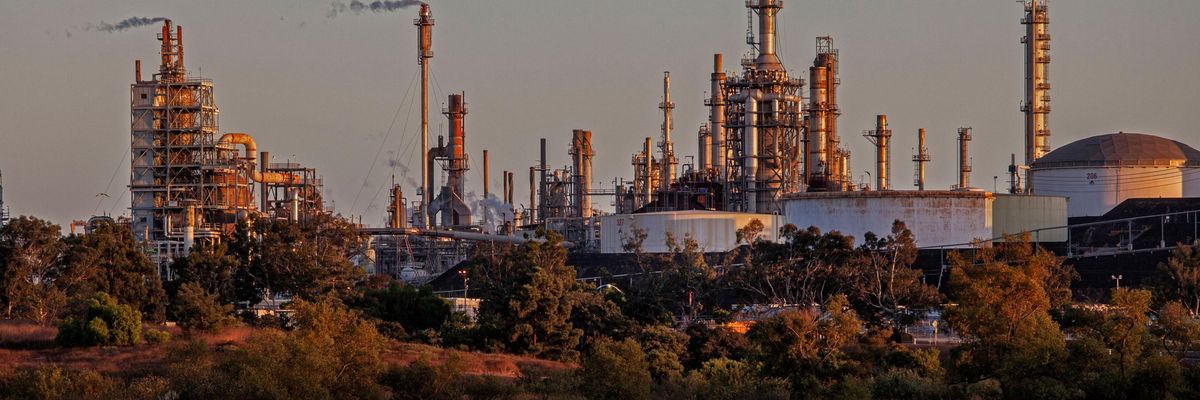A first-of-its-kind public database launched Monday estimates that burning all of the world's known fossil fuel reserves would spew 3.5 trillion tons of greenhouse gas into the atmosphere--more than all of the emissions released since the Industrial Revolution.
The new database, known as the Global Registry of Fossil Fuels, also warns that emissions produced by combusting all of the planet's oil, gas, and coal reserves would exceed the world's dwindling "carbon budget" seven times over, underscoring the urgency of keeping fossil fuels in the ground to avert climate catastrophe.
"The U.S. and Russia each hold enough fossil fuel reserves to blow the entire global carbon budget."
"The science is crystal clear," Inger Andersen, under-secretary-general of the United Nations and executive director of the United Nations Environment Program, said in a statement Monday. "The transition away from fossil fuel-powered economies is critical to the survival of people and the planet."
"For this to happen we need to deploy every solution in our toolbox to decarbonize our economies," Anderson added. "The Global Registry of Fossil Fuels is an important step in providing insights to policymakers and investors as we embark on a just transition away from fossil fuels."
Led by Carbon Tracker and the Global Energy Monitor, the expansive new registry includes data for more than 500,000 oil, gas, and coal fields in 89 countries around the world, with the goal of providing transparency around fossil fuel reserves and production at a time when the climate crisis is fueling increasingly devastating extreme weather events across the globe, pushing up sea levels, and threatening to render large swaths of the planet uninhabitable.
"To date, climate change policy efforts have focused on reducing demand and consumption of oil, gas, and coal, but ignored the supply of those fuels," notes Carbon Tracker, an independent think tank. "The Paris Agreement, for example, does not even mention fossil fuel production, despite the fact that such fuels account for over 75% of global greenhouse gas emissions."
The organization goes on to observe that the newly released data shows "the U.S. and Russia each hold enough fossil fuel reserves to blow the entire global carbon budget, even if all other countries ceased production immediately."
"Of the 50,000 fields covered by the registry," Carbon Tracker points out, "the most potent source of emissions is the Ghawar oil field in Saudi Arabia, which produces approximately 525 million tons of carbon emissions each year."
Suneeta Kaimal, president and CEO of the Natural Resource Governance Institute, said in a statement that the new registry marks "a welcome step toward open access to vital information about fossil fuels."
"A fair global energy transition requires greater transparency, better coordination between states, and stronger accountability for fossil fuel production," said Kaimal. "Now citizens and investors everywhere have an essential tool to hold governments and companies responsible for their decisions."




